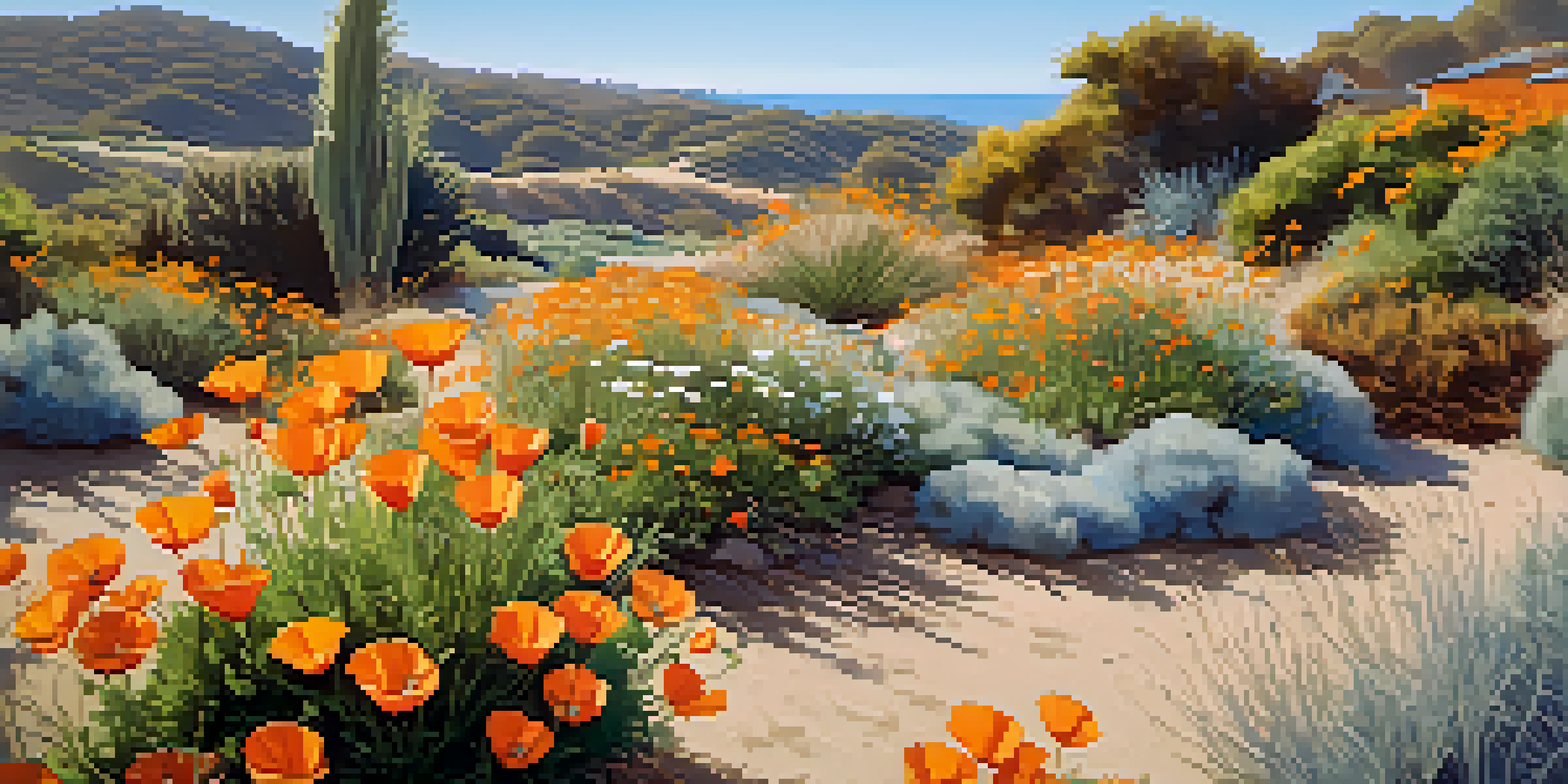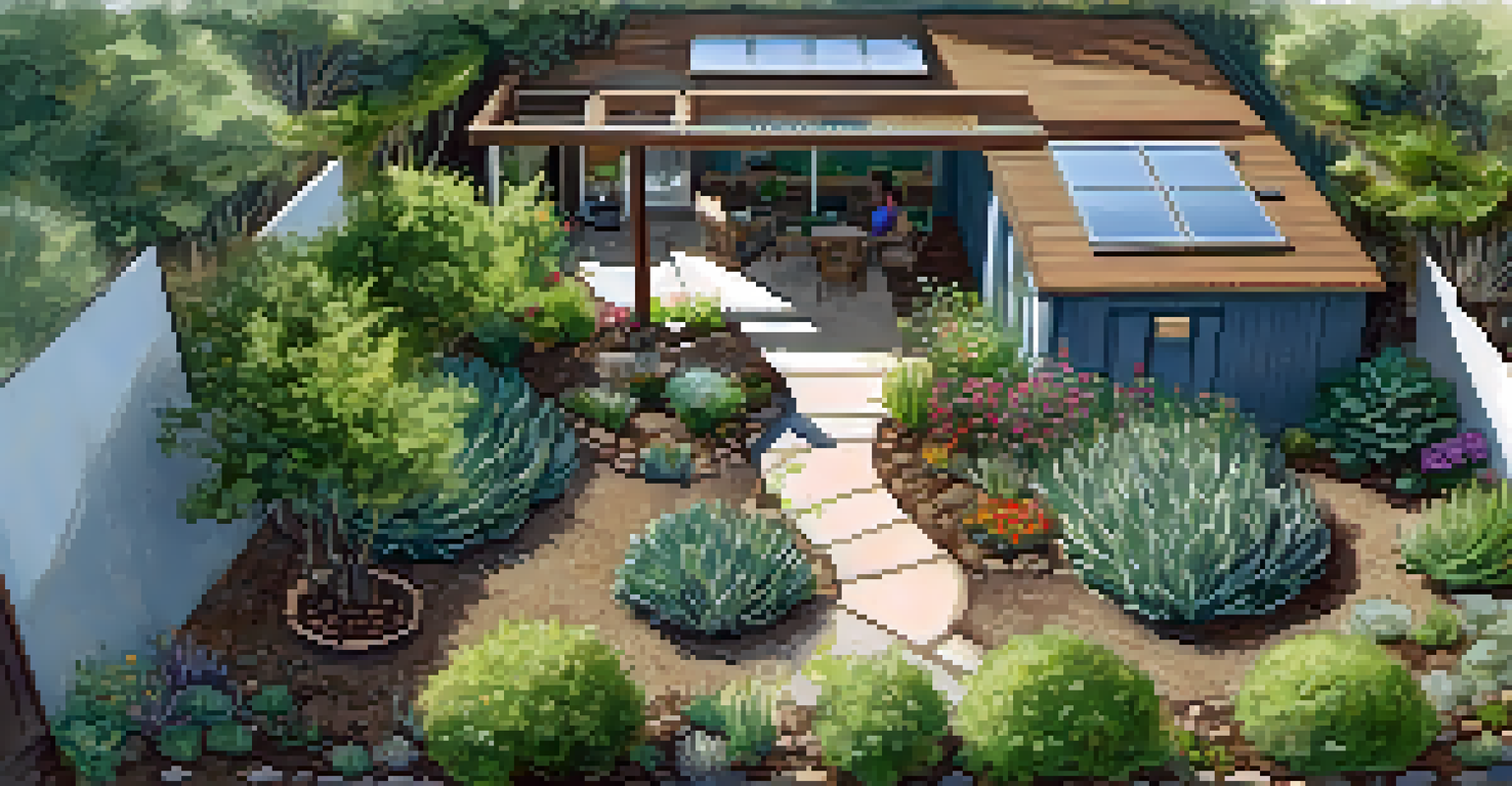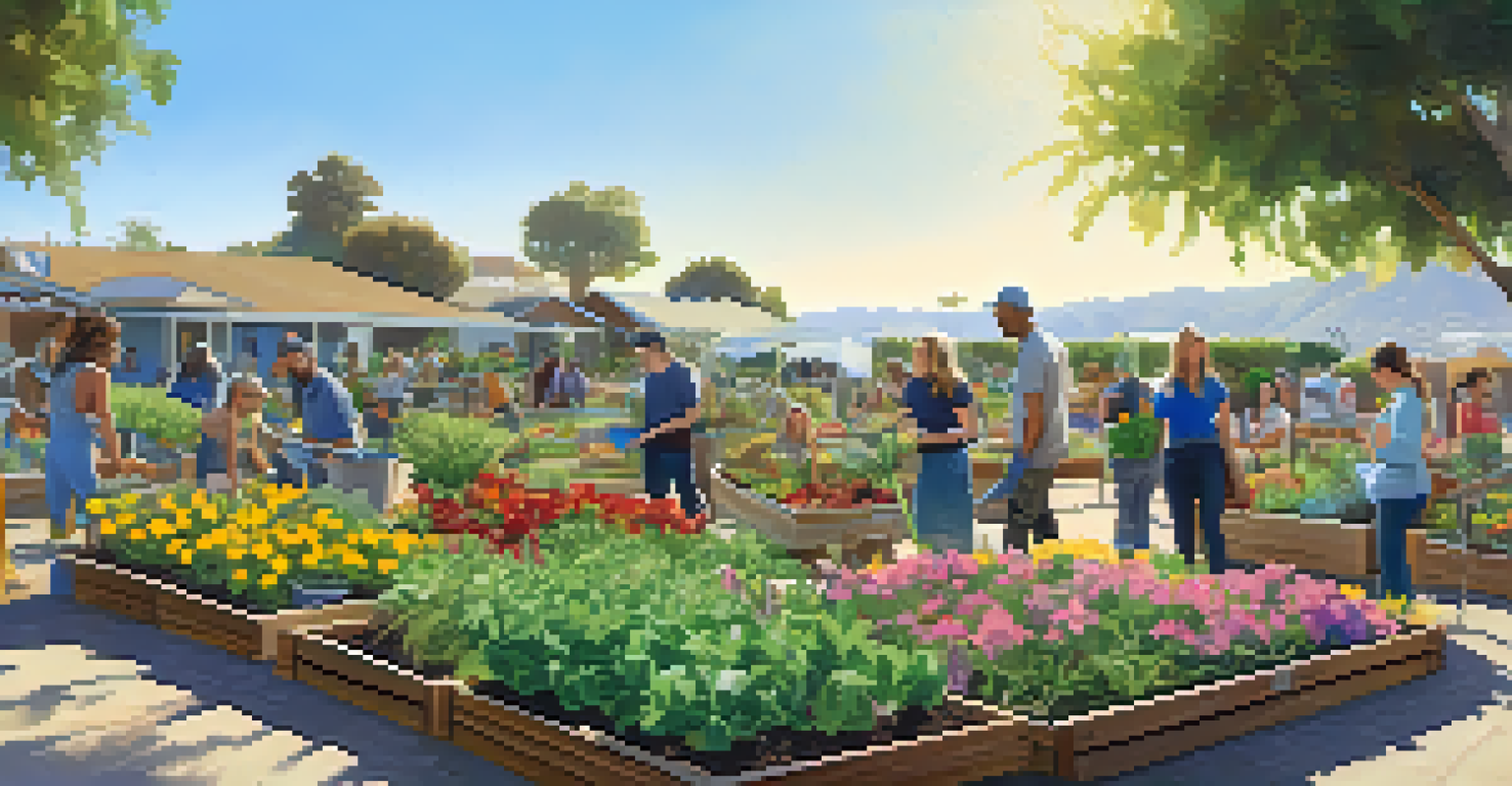Sustainable Gardening Practices for Malibu's Unique Climate

Understanding Malibu's Unique Climate for Gardening
Malibu boasts a Mediterranean climate characterized by warm, dry summers and mild, wet winters. This unique weather pattern offers a great opportunity for gardening enthusiasts to cultivate a diverse range of plants. However, it also presents challenges, particularly regarding water conservation and plant selection. Understanding these climate nuances is the first step toward establishing a thriving, sustainable garden in Malibu.
To plant a garden is to believe in tomorrow.
The coastal breeze can also affect temperature and humidity levels, making some plants flourish while others struggle. For instance, drought-resistant plants like succulents and native California flora are often more successful in this environment. As gardeners become more aware of these factors, they can make informed choices that align with both the local climate and sustainability goals.
Moreover, Malibu's soil composition is generally sandy and well-drained, which is excellent for many plants but may require amendments for others. Adding organic matter can improve soil health and moisture retention, essential for sustaining plants during the hot summer months. By tailoring their gardening practices to Malibu's climate, gardeners can create a more resilient and eco-friendly garden.
Choosing Native Plants for Sustainable Gardening
One of the best ways to practice sustainable gardening in Malibu is by choosing native plants. These species are adapted to the local climate and require less water, fertilizer, and maintenance. Plus, they attract local wildlife, promoting biodiversity in your garden. Examples of native plants include California poppies and coastal sagebrush, both of which thrive in Malibu's unique conditions.

Native plants have evolved alongside local insects and animals, creating a symbiotic relationship that supports the ecosystem. By incorporating these plants into your garden, you're not just beautifying your space; you're also contributing to the local environment. This approach is particularly important in a region like Malibu, where natural habitats are continually threatened by development and climate change.
Embrace Native Plants for Gardens
Choosing native plants in Malibu supports local biodiversity and requires less water and maintenance.
Additionally, native plants often have fewer pests and diseases, reducing the need for chemical interventions. This not only saves time and money but also aligns with sustainable gardening principles. Embracing native flora is a win-win for both your garden and the local ecosystem.
Implementing Water Conservation Techniques
Water conservation is crucial in Malibu, especially given California's ongoing drought challenges. One effective method is to install a drip irrigation system, which delivers water directly to the plant roots, minimizing waste. This targeted approach ensures that plants receive the moisture they need without overwatering, making it a sustainable choice for your garden.
The greatest threat to our planet is the belief that someone else will save it.
Another technique involves using mulch to retain soil moisture and reduce evaporation. Organic mulches not only help keep the soil cool but also break down over time, enriching the soil. By layering mulch around your plants, you create a more water-efficient garden that thrives even during the hottest months.
Lastly, consider capturing rainwater through a rain barrel system. This sustainable practice allows you to collect and store rainwater for use during dry spells. By reusing this water, you’re not only conserving resources but also reducing your overall water bill, proving that eco-friendly practices can also be economically beneficial.
Creating a Composting System for Your Garden
Composting is a fantastic way to reduce waste and enrich your garden soil simultaneously. By converting kitchen scraps and yard waste into nutrient-rich compost, you can enhance soil fertility while supporting sustainable gardening practices. In Malibu, where soil can be sandy, adding compost helps improve moisture retention and soil structure, making your garden more resilient.
Starting a compost pile is simple: layer green materials like vegetable scraps with brown materials such as dried leaves and twigs. This balanced mix provides the necessary nutrients for composting microorganisms to thrive. Regularly turning the pile encourages decomposition and aeration, speeding up the process.
Implement Effective Water Conservation
Utilizing drip irrigation, mulch, and rainwater collection can significantly enhance water efficiency in gardening.
Not only does composting reduce landfill waste, but it also fosters a sense of connection to your garden. Watching kitchen scraps transform into rich compost can be incredibly rewarding, reminding you of the natural cycles that support life. It's a sustainable practice that benefits both your garden and the environment.
Incorporating Organic Pest Management Strategies
Managing pests sustainably is essential for any gardener, especially in Malibu's unique climate. Instead of relying on chemical pesticides, consider organic pest management strategies that protect your plants while keeping the ecosystem intact. Natural solutions like introducing beneficial insects, such as ladybugs and lacewings, can help control pest populations without harming the environment.
Another method is companion planting, where specific plants are grown together to naturally deter pests. For example, planting marigolds alongside vegetables can repel harmful insects while attracting pollinators. This holistic approach not only protects your garden but also encourages biodiversity and a healthier ecosystem.
Additionally, regular monitoring and manual removal of pests can effectively keep infestations at bay. By being proactive and using these organic methods, you can maintain a healthy garden that thrives sustainably, reflecting a commitment to environmental stewardship.
Utilizing Sustainable Gardening Tools and Practices
The tools you use can significantly impact the sustainability of your gardening practices. Opting for hand tools made from sustainable materials, such as bamboo or recycled metals, reduces your environmental footprint. These tools are often more durable and effective, making your gardening experience not only eco-friendly but also enjoyable.
Consider also investing in solar-powered or battery-operated gardening equipment. These tools can help minimize energy consumption and reduce greenhouse gas emissions. For instance, a solar-powered garden light not only illuminates your garden sustainably but also adds a beautiful touch to your outdoor space.
Engage with Community Efforts
Participating in local gardening clubs and community gardens fosters shared knowledge and sustainable practices.
Moreover, practicing good gardening habits—like rotating crops and minimizing soil disturbance—can lead to healthier plants and a healthier ecosystem. By being mindful of the tools and techniques you use, you contribute to a more sustainable gardening environment that aligns with Malibu's natural beauty.
Engaging with the Community for Sustainable Practices
Gardening is often seen as a solitary activity, but engaging with your community can enhance your sustainable gardening journey. Participating in local gardening clubs or workshops in Malibu can provide valuable insights and resources. Sharing experiences and knowledge fosters a sense of community, encouraging more people to adopt sustainable practices.
Additionally, community gardens are an excellent way to promote sustainable gardening in a collaborative environment. These shared spaces not only provide access to gardening for those without their own land but also serve as a platform for education on sustainable techniques. Together, community members can learn about native plants, composting, and water conservation, strengthening local ecosystems.

By connecting with fellow gardeners, you can inspire each other to adopt new practices and share resources, like seeds or tools. This collective effort not only enhances individual gardens but also contributes to a broader movement toward sustainability in Malibu.